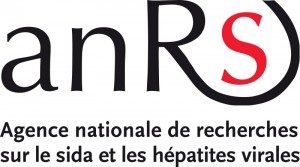Présentation
While potentially able to activate an immune response, the Hepatitis C virus establishes in a chronic infection in the majority of patients with progressive inflammation and degradation of the liver over time. Intensive research since the molecular cloning of this virus in the 1990’s both at the fundamental, clinical and pharmacological level has now given the possibility of a cure and at the same time is providing a solid base for studying a model of persistent viral infection. We investigate the mechanism of action of cellular signalling pathways that activate in response to viral infections or stress and which are involved in the control of induction of innate immune response and activation of inflammation. We have highlighted a role for a coordinated control of the IRF and NF-kB activation pathways leading to type I and type III IFN induction, with emphasis on the role of PKR, of the IRF3/IRF7-activating TBK1/IKKe kinases, and recently oxydative stress during HCV infection (Breiman et al, 2005,JV ; Vilasco et al, Hepatology, 2006 ; Paz, Vilasco et al, 2009, MCB; Paz, Vilasco et al, 2011, Cell Res ; Dabo et al, in preparation).
By using the model of infection with HCVcc, we showed that HCV can manipulate PKR, a cellular stress-related dsRNA-binding eIF2a kinase to modulate induction of the innate immune response. On one hand, translation of IFN and of other eIF2a-dependent mRNAs is attenuated upon activation of PKR, while translation of the HCV genome proceeds unbatated due to its eIF2a-insensitive IRES structure (Arnaud et al., 2010, Plos One). On the other hand, PKR acts as an adapter to associate with effectors of the IFN inducing pathway and trigger induction of IFN and IFN-stimulated genes (Arnaud et al, 2011 PLoS Path).
While PKR was initially considered as an antiviral agent, because it belongs to the IFN-induced proteins and activates in presence of dsRNA, it is more accurate to define now this protein as a pro-stress protein which can help cells to fight a virus or, on the contrary, help the virus to fight the cell’s defense. PKR can also trigger an important cell disbalance in response to different non-viral stresses. Indeed, our lab was pionneer in demonstrating that PKR modulates signaling pathways involved in inflammation independently of its enzymatic activity (Meurs et al,1995; Bonnet et al; 2000; 2006 ; review Dabo and Meurs, 2012). A collaborative work with the Gatignol’s group in Montreal, using the model of infection with HIV-1, showed that the antiviral activity of PKR can be regulated through three other cellular dsRNA-binding proteins, such as ADAR1 (Clerzius et al., 2009) TRBP and PACT (Daher et al., 2009 ; review Burugu et al, 2014). Hence, PKR is a two-edged sword that can benefit or dramatically affect the cells in response to a stress, such as an infecting pathogen or cell deregulation. We are now pursuing our studies on the role of PKR, and other dsRNA-binding proteins in the modulation of several stress-related signalling pathways, in particular using HCV as a model of persistent infection and also in the stress-related pathological model of Alzheimer disease. Importantly, we have developped an in vitro interaction assay between PKR and its activator PACT in order to screen chemical compound libraries and generate novel PKR inhibitors for clinical purpose that could be used in HCV-related inflammation and also in other persistent infections and/or stress-associated diseases.







